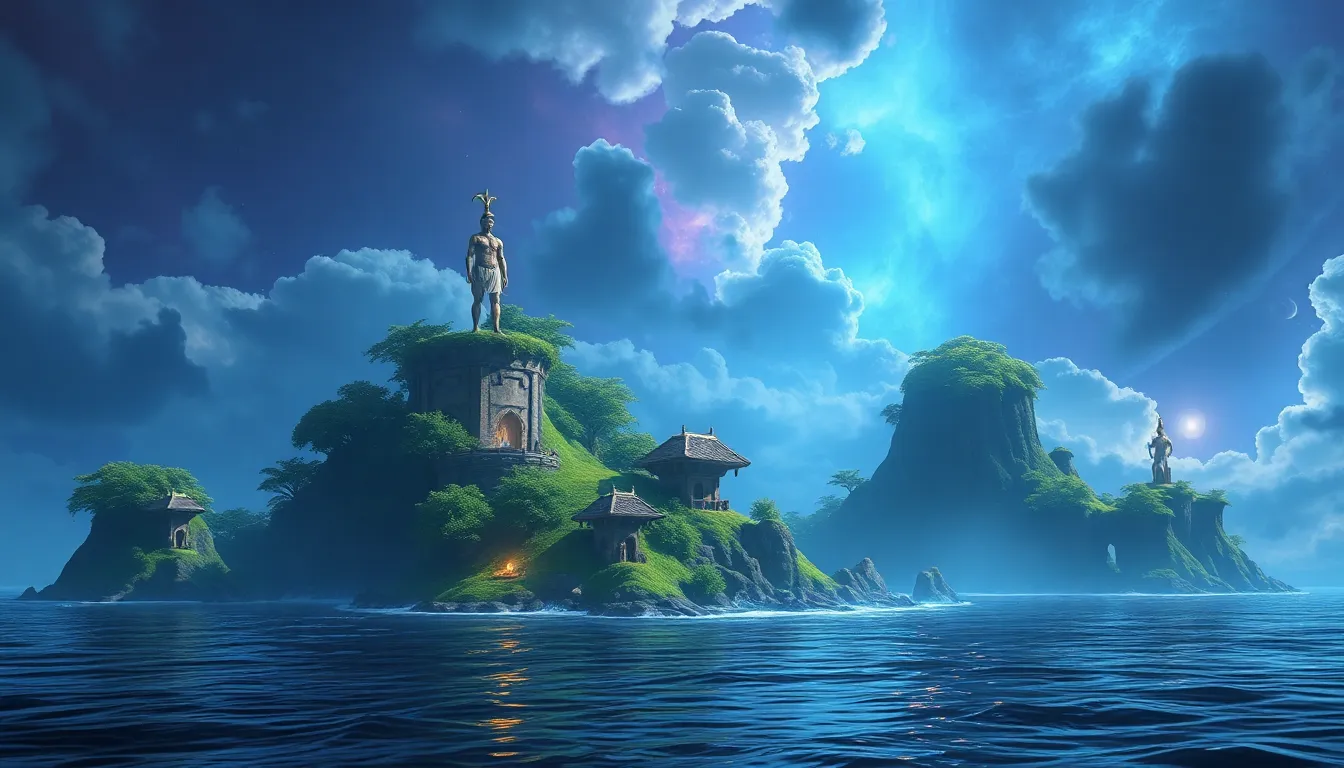The Myth of the Kingdom of Atlantis: New Discoveries That Challenge History
I. Introduction to Atlantis: The Origins of the Legend
The story of Atlantis, a legendary island first mentioned by the ancient Greek philosopher Plato, has captivated the human imagination for centuries. In his dialogues “Timaeus” and “Critias,” Plato describes Atlantis as a powerful and advanced civilization that ultimately fell out of favor with the gods and sank into the ocean. This account, while fictional, has led to countless theories and speculations about the existence of Atlantis.
Historically, Atlantis has been contextualized within the traditions of ancient civilizations, often portrayed as a cautionary tale about the dangers of hubris. It has transcended its origins in philosophical discourse to become a symbol of lost potential and mystery. The allure of the Atlantis myth has permeated popular culture, inspiring countless books, films, and artworks that explore themes of civilization, loss, and the unknown.
II. The Search for Atlantis: Historical Perspectives
From the moment Plato’s accounts surfaced, the search for Atlantis has intrigued explorers, historians, and archaeologists alike. Early explorers, such as the famed geographer Eratosthenes, speculated about the location of Atlantis, proposing various sites ranging from the Caribbean to the Mediterranean.
Throughout history, the Atlantis myth has influenced ancient civilizations, leading to the construction of elaborate theories and stories. Civilizations like the Maya and the Egyptians were often thought to bear similarities to the mythical Atlantis, highlighting their advanced knowledge and architectural prowess.
Archaeological efforts to uncover the truth behind Atlantis have yielded mixed results. While some expeditions have found intriguing evidence of advanced cultures, none have definitively proven the existence of Atlantis as described by Plato.
III. New Discoveries: Recent Findings and Technological Advances
Recent advancements in underwater archaeology and technology have reinvigorated the search for Atlantis. Techniques such as:
- Underwater excavation
- Satellite imagery
- Remote sensing technologies
have significantly enhanced our ability to explore submerged landscapes and ancient ruins. Case studies from the Mediterranean and beyond have provided new insights; for example, the discovery of submerged structures off the coast of Crete has sparked debates about their potential connection to the Atlantis narrative.
IV. Geological Evidence: Natural Catastrophes and Their Impact
Natural disasters such as earthquakes and tsunamis have played a pivotal role in shaping ancient myths, including that of Atlantis. Geological evidence suggests that significant seismic activity in the Mediterranean region could have led to the destruction of coastal civilizations, which may have inspired tales of lost lands.
Geological formations that resemble Plato’s descriptions of Atlantis have also been identified. For instance, some researchers point to the Santorini eruption as a possible catalyst for the Atlantis myth, given the island’s catastrophic destruction and subsequent cultural shifts.
Moreover, the impact of climate change on ancient societies cannot be overlooked. Shifts in climate may have led to the decline of civilizations, reinforcing the idea that human hubris can lead to downfall.
V. Comparative Mythology: Atlantis and Other Lost Civilizations
Many cultures have their own myths of lost civilizations, such as Lemuria and Mu. These stories share similarities with the Atlantis narrative, suggesting a common thread in human culture. Common themes include:
- Advanced technology
- The moral downfall of society
- Catastrophic destruction leading to loss
These myths often reflect psychological and cultural reasons for human fears and aspirations, serving as cautionary tales about ambition, greed, and environmental stewardship.
VI. Debunking the Atlantis Myth: Scientific Critiques
Despite its enduring appeal, many scholars argue against the existence of Atlantis. Key critiques include:
- Lack of concrete archaeological evidence
- Plato’s dialogues being interpreted as allegory rather than historical fact
- Misinterpretations and exaggerations in popular culture
The role of skepticism in historical analysis is crucial, as it encourages a critical examination of claims and narratives. This skepticism helps to separate fact from fiction, particularly in the case of myths like Atlantis.
VII. The Modern Interpretation of Atlantis
Today, contemporary culture continues to reimagine Atlantis in various forms. From literature to film and art, the story of Atlantis is often portrayed as a utopia lost to time, a theme that resonates with audiences around the world. Notable representations include:
- James Cameron’s animated film “Atlantis: The Lost Empire”
- Popular literature such as “The Lost City of Atlantis” by various authors
- Artistic interpretations in museums and galleries
This persistent fascination with lost civilizations reflects humanity’s desire to explore the unknown and to grapple with the consequences of our ambitions.
VIII. The Legacy of Atlantis: Lessons from the Myth
The story of Atlantis carries moral and philosophical implications that resonate even today. It serves as a reminder of the potential consequences of human ambition and environmental disregard. The cautionary tale of Atlantis encourages modern society to consider:
- The importance of environmental sustainability
- The ethical implications of technological advancement
- The need for humility in the face of nature’s power
As a symbol of ambition and hubris, Atlantis continues to inspire reflection on the balance between progress and responsibility.
IX. Future Research Directions: What Lies Ahead?
The search for Atlantis is far from over. Future research may explore various areas, including:
- Underwater exploration in previously uncharted territories
- Interdisciplinary approaches combining archaeology, geology, and mythology
- Technological innovations that enhance exploration capabilities
Keeping an open mind about historical narratives is essential, as new discoveries may challenge existing beliefs and expand our understanding of the past.
X. Conclusion: The Enduring Impact of the Atlantis Myth on History and Culture
In summary, the myth of Atlantis has left an indelible mark on human thought and culture. From its origins in Plato’s dialogues to its modern interpretations, the story continues to spark curiosity and debate. The significance of the Atlantis myth lies not only in its narrative but also in its ability to reflect humanity’s fears, ambitions, and aspirations. As we continue to explore our past, the lessons of Atlantis remain relevant, guiding us in our quest for understanding and sustainability.



